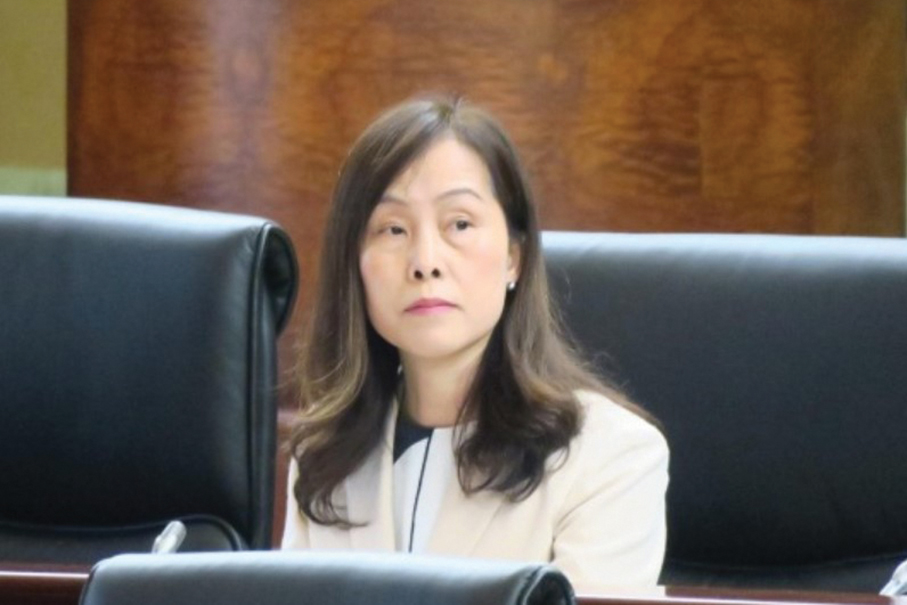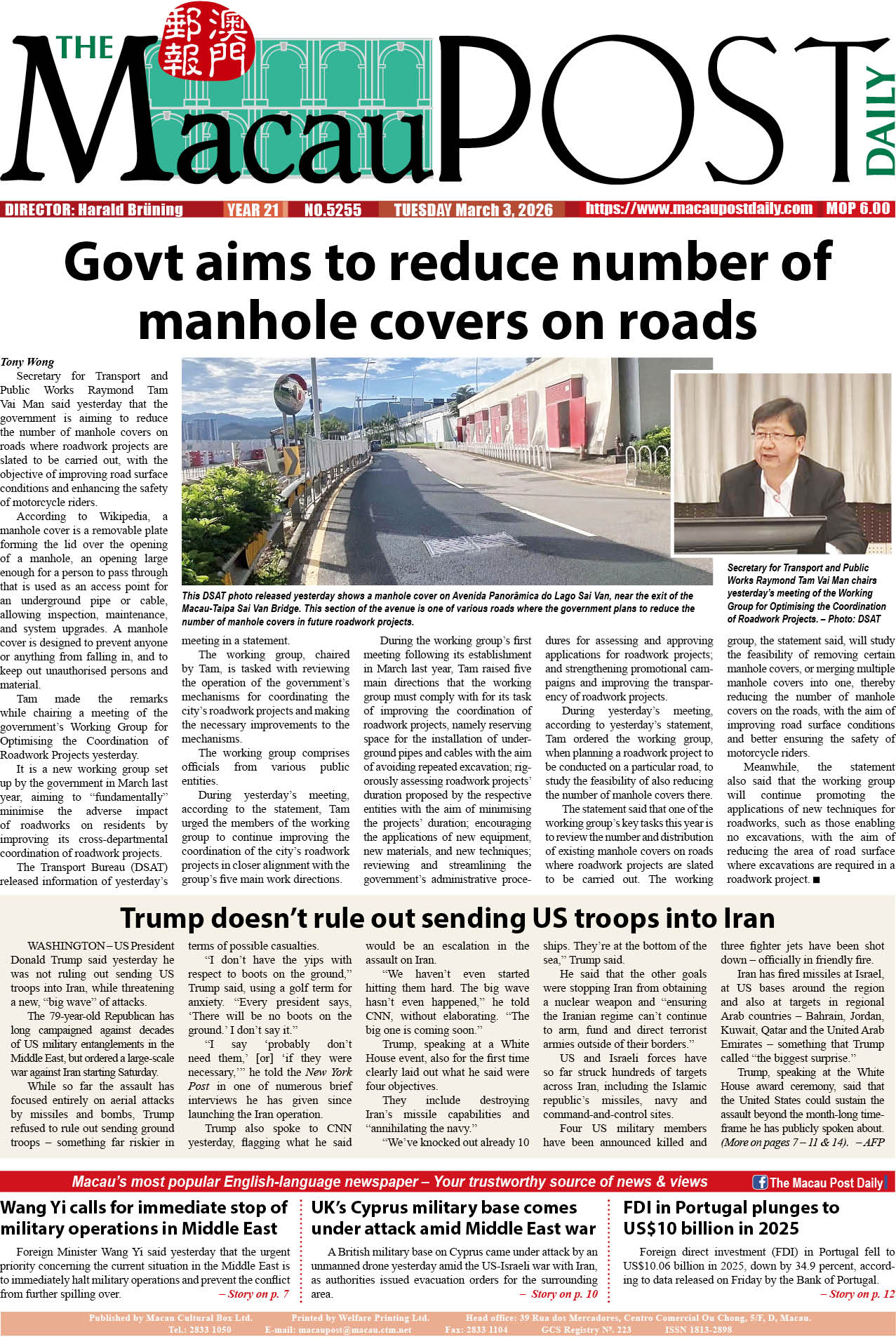Chief Executive Fernando Chui Sai On pledged yesterday that the local government will “actively” participate in the national development strategy, “actively” cooperate with the central government’s initiatives, and “organically combine” the local government’s 5-year-plan with the Belt and Road Initiative (BRI) and the Guangdong-Hong Kong-Macau Greater Bay Area (GBA) project.
Chui made the remarks in his opening speech at a seminar entitled “The Belt and Road Initiative and Macau’s Development” at Macau Tower.
The seminar was themed “Macau – World City in the BRI”.
Chui underlined that the BRI is a “strategic opportunity” for Macau’s integration into the central government’s national development strategy and for Macau’s “self-improvement” , adding that it has important implications for Macau’s further advancement of the practice of the “One Country, Two Systems” principle.
The half-day seminar was jointly organised by the Policy Research and Regional Development Bureau (DSEPDR), Macau Foundation (FM) and a local think tank named Grand Thought.
National Committee of the Chinese People’s Political Consultative Conference (CPPCC) Edmund Ho Hau Wah and other senior local officials, Central People’s Government Liaison Office Deputy Director Yao Jian and Deputy Foreign Minister Commissioner Wang Dong. About 200 people attended the seminar.
3 pieces of advice for Macau’s participation in BRI
Yao presented three pieces of advice on Macau’s participation in the BRI in his opening speech.
Firstly, Macau should “actively perform” its “bridging” capability, Yao said, adding that by participating the BRI, having close connections with the Portuguese-speaking countries (PSCs), the Association of Southeast Asian Nations (ASEAN), and the overseas Chinese communities was a “natural advantage” for Macau.
Secondly, Yao noted that Macau should firmly build its “one centre, one platform, one base” foundation, based on Macau’s institutional advantage of the “One Country, Two Systems” principle, and favourable conditions such as its free port, separate customs area, and low tax rate, in order to improve its international status and achieve sustainable development.
Thirdly, Yao underlined that Macau should continue to perform its role as a “precise liaison” between the mainland and the PSCs, building a “tripartite cooperation platform” for companies from the three sides to jointly explore the markets along the BRI route.
Cheung Kong Graduate School of Business (CKGSB) Director Xiang Bing said in his key-note speech that Macau could make a “strategic contribution” to the BRI in the areas of investment, training qualified personnel, and people-topeople exchanges, by focusing on Macau’s role as “window” to the PCSs.
Institute for Contemporary China Studies of Tsinghua University Director Hu Angang said in his key-note speech that the preparation and implementation of Macau’s first five-year-plan was an “important initiative” for Macau’s “active fulfilment” of the central government’s national development strategy, and its “unflinching” determination to “fully implement” the “One Country, Two Systems” principle, adding that it was also an important reason for Macau’s economic and social “rapid development”.
Chief Executive Fernando Chui Sai On delivers his opening speech at the seminar of “The Belt and Road Initiative and Macau’s Development” at Macau Tower yesterday. Photo: GCS
PLEASE READ THE FULL ARTICLE IN OUR PRINT EDITION.








